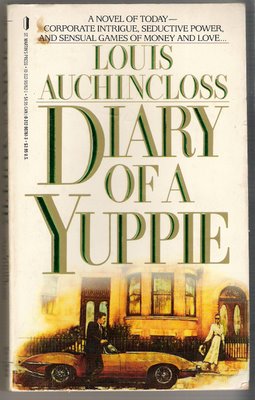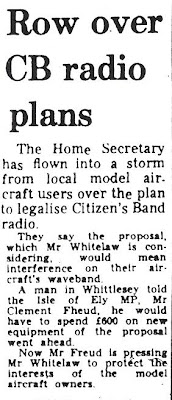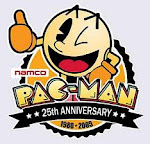 My wife recently bought this 1986 work of fiction in a charity shop, thinking it might bring back a few memories of the mid-'80s era to me.
My wife recently bought this 1986 work of fiction in a charity shop, thinking it might bring back a few memories of the mid-'80s era to me.Diary Of A Yuppie is about a yuppie who likes making money, and having boardroom meetings, and eating lots of posh food, and wearing lots of posh clothes.
At least I assume it is. The first few pages certainly indicate it is.
In 1986, I was having the time of my life, dancing to the Pet Shop Boys and Nu Shooz, and wearing shoulder-padded jackets over cerise mesh vests. And I didn't wear socks - it was Miami Vice trendy not to (stupid fool - I wore canvas shoes and they rubbed nearly all the skin off my feet).
I was also trying to grow designer stubble (it simply made me look dog rough), glutting on hair gel and mousse, and fancying myself with blonde streaks. On top of all that, I was boozing and bedding like there was no tomorrow.
But I wasn't a yuppie. I was working like a dog at... I'll call it Primrose Cottage, a Social Services home for the elderly, so the experiences related in the book don't meld with my own, arouse no nostalgia, and so I've stopped reading after page four.
Also, it's American and I'm English. Bog standard, financially poor-as-can-be English at that.
The book's cover makes an interesting "sign of the times" for the blog, though!
20th Century Words by John Ayto, traces the yuppie name back to 1982 and defines a yuppie thus:
a member of a socio-economic group comprising young professional people working in cities of a type thought of as typifying the ethos of the 1980s: ambitious, go-getting, newly affluent, young, class-free, owing no debt to the past. Originally US; a hybrid word coined probably by grafting an acronym based on "Young Urban Professional" (or "Young Upwardly mobile Professional") on to a basic model suggested by hippie.
Some people, of course, spell it "yuppy".
I have read on-line that the yuppie word was first coined in 1981, whilst 20th Century Words, as seen above, traces it to 1982.
The yuppie acronym probably comes from Chicago. An article by Dan Rottenberg in a May 1980 Chicago magazine called "About that urban renaissance.... there'll be a slight delay" (which I've seen on-line, not in original print), is the first ever found to mention "yuppies" - however the name was simply applied to the upwardly mobile set, gentrifying certain areas, and the associated problems, not the Reagan/Thatcher adoring huge money makers of later in the decade. Those type of yuppies, the ones the tag are now associated with, were prevalent in the mid-to-late decade, and the yuppie tag "took off" during the early Reagan years - the US President was elected in November 1980 and inaugurated in January 1981.
In the UK, I think we started to move into our "yuppie era" around 1984. I remember 1980, 1981 and 1982 as being financially-poor-as-church-mice years. In 1983, things perhaps began to alter a little... and I think 1984 was getting distinctly upwardly mobile. Funnily enough, although people now like to categorise the entire 1980s as being "excess unlimited", I only remember the years 1984 to 1987 as being truly like that. Black Monday in 1987 sent out huge shock waves throughout the financial world, and in 1988 Acid House was distorting the 1980s' "stylish" image more than somewhat.
And '80s "stylish" garb (which I loved) and yuppies were far from being the full story from 1984 to 1987, either. Who could ever forget the Miners' Strike? The Left were very vocal, and environmental concerns were on the rise. I always recall the 1980s as being uproar. And that includes the "height of yuppiedom" years.
I've been having a little delve into the world of yuppiedom, and discovered that as well as plain and simple yuppies there were buppies (black yuppies), Juppies (Japanese yuppies), guppies (gay yuppies), green yuppies (environmentally concerned yuppies - tree hugging dosh chasers - amazing!) and "yuppie puppies" - (upwardly mobile kids, under twenty or the offspring of yuppies).
 A yuppie with a yuppie toy in the 1980s - a brick mobile phone. Yuppies also liked filofaxes and wine bars. Oh, yes, I almost forgot - and money.
A yuppie with a yuppie toy in the 1980s - a brick mobile phone. Yuppies also liked filofaxes and wine bars. Oh, yes, I almost forgot - and money. "Hello, darling, it's me. Listen, I've got a meeting with the chairman of the board in twenty minutes, and my shoulder pads have gone all funny..."
"Hello, darling, it's me. Listen, I've got a meeting with the chairman of the board in twenty minutes, and my shoulder pads have gone all funny..."




































